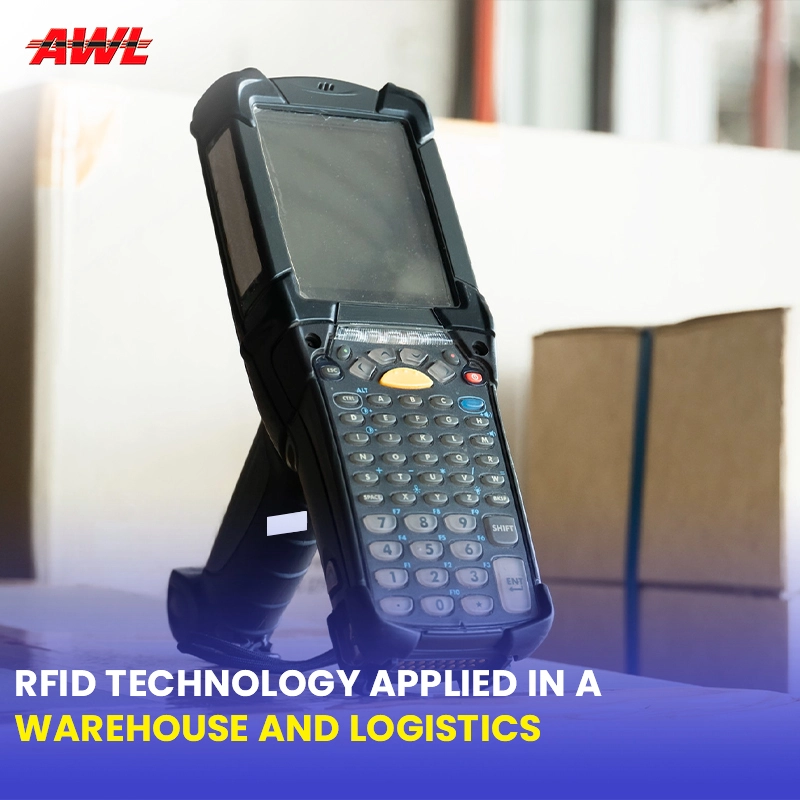

In today's digital landscape, RFID technology emerges as a pivotal solution for businesses grappling with real-world challenges. With its potential to revolutionise various industries, the trajectory of RFID technology is poised for significant expansion in the coming years. Already, pioneering companies have attested to the remarkable benefits and returns on investment (ROI) afforded by RFID solutions. As businesses increasingly harness its capabilities, the transformative impact of RFID software promises to reshape operations, enhance efficiency, and drive sustainable growth across diverse sectors. RFID technology is likely to expand by leaps and bounds in the future years. In today's digital age, RFID technology is ideal for addressing real-life business difficulties. Several companies who have already invested in RFID solutions have spoken out about the advantages and return on investment (ROI) provided by this technology. Also, if you’re looking for RFID warehouse management India, then AWL India might be the right place for you.
AWL India Pvt. Ltd. understands that in recent years, the largest users of RFID have been retail and healthcare, followed by aviation. Other industries have also increased their use of RFID. RFID is being adopted by manufacturing industries such as automotive, oil and gas, hotel, and IT services in order to increase production, efficiency, and bottom line. Let's look at the top 5 industries that are likely to use RFID on a global scale and where RFID will experience rapid growth.
RFID is gaining popularity in manufacturing industries such as automotive, packaging, and pharmaceuticals along with other industries. Today's highly automated industrial processes require simple and dependable methods for tracking and tracing inputs, parts, or assets. Furthermore, manufacturing processes are frequently carried out under extreme environmental conditions such as high temperatures, high pressures, humidity, the presence of chemicals, etc. RFID technology can be useful in such situations. Incorporating RFID tags and readers into the production environment allows for more efficient, accurate, and timely tracking of a wide range of materials/products across the whole supply chain. RFID can also aid with more flexible manufacturing processes, more accurate inventory management, and increased operational efficiency. AWL understands that incorporating RFID technology gives firms a better chance of success and growth. With worldwide standards in place, rising system cost-effectiveness, improved solution reliability, and widespread use, RFID warehouse management system are primed for rapid expansion in all industries.
The retail business was an early adopter of RFID technology. Walmart, the American global retail giant, was the first in North America to embrace RFID technology in the early 2000s. However, since then merchants have been using RFID technology primarily to optimise their supply chain and inventory processes. Moreover, RFID has been widely embraced by fashion and apparel companies, including Marks & Spencer, John Lewis, and Spanish fashion retailer Zara. Furthermore, the benefits of RFID technology to other stores such as cosmetics, food, jewellery, and small home appliances cannot be overlooked.
However, as technology advances and RFID equipment becomes more sophisticated, retailers are now embracing RFID technology not only for much simpler procedures such as inventory management, but also for some unique and inventive business models. RFID technology also benefits customers. Retailers may develop focused consumer experiences with RFID technology by offering a broader selection of products, giving richer product information and more personalised promotions, and serving them fast. RFID can also help shops improve their inventory management by monitoring out-of-stock items and ensuring that store shelves are never empty.
Healthcare is one of the industries that has witnessed widespread RFID usage. RFID technology improves efficiencies and asset visibility, which can significantly improve the patient experience and outcomes. According to a recent market study, RFID technology will increase exponentially in the healthcare industry by the end of 2025. RFID has a wide range of applications in the healthcare industry, including inventory tracking, patient/staff tracking, asset and tool tracking. Furthermore, new RFID systems are in the works for speedier scanning and item-level RFID tracking of critical blood products.
Furthermore, several hospitals throughout the world have already implemented RFID and reported increased safety, lower costs, and higher quality of care. AWL India believes that RFID has made important advances in healthcare research as well apart from being favourable in other sectors of the healthcare industry.
RFID is practically rising in the aviation industry. The potential for RFID in the tough aviation business is enormous. Aircraft manufacturers can use RFID to identify, track, and manage important aeroplane components, saving time and minimising errors in the process. Whereas, looking at the benefits of RFID system in inventory management, passenger airlines can use RFID for baggage tracking; and air freight carriers can use RFID-enabled technologies to track shipments. Moreover, the implementation of RFID in luggage tracking can result in a large reduction in lost baggage.
In fact, there are a few leading airlines that have made significant investments in RFID for luggage tracking and management. Apart from these obvious applications, RFID can also be utilised to enhance aeroplane safety. However, numerous airlines use RFID for pre-flight safety protocols. RFID is also being used in congested airports throughout the world to shorten check-in lines and improve service.
Security and tampering evidence are predicted to improve significantly with RFID. RFID tags that change colour in reaction to tampering, increased usage of holograms, solutions that provide visible evidence of tampering, and data encryption are just a few of the measures that will use RFID. Important RFID developments in national security, particularly for citizen IDs—passports and national IDs—will be demonstrated. AWL believes that RFID-enabled biometric fingerprint readers can be used to authenticate individuals and ensure that only authorised workers obtain access to a location. Furthermore, RFID is also beneficial for boosting security at amusement parks, festivals, stadiums, and conferences.
In conclusion, AWL India being the leading RFID company in India stands at the forefront of digital innovation, offering transformative solutions to real-world challenges across diverse sectors. Moreover, AWL India being one of the leading providers of RFID inventory management solutions India understands that by its adoption in key industries like manufacturing, retail, healthcare, aviation, and security, RFID is poised for exponential growth in the coming years. With its ability to streamline operations, enhance efficiency, and drive sustainable growth, RFID technology continues to revolutionise business processes and customer experiences alike. As companies worldwide increasingly recognize its potential, the future of RFID promises to usher in a new era of connectivity, productivity, and security across global markets

